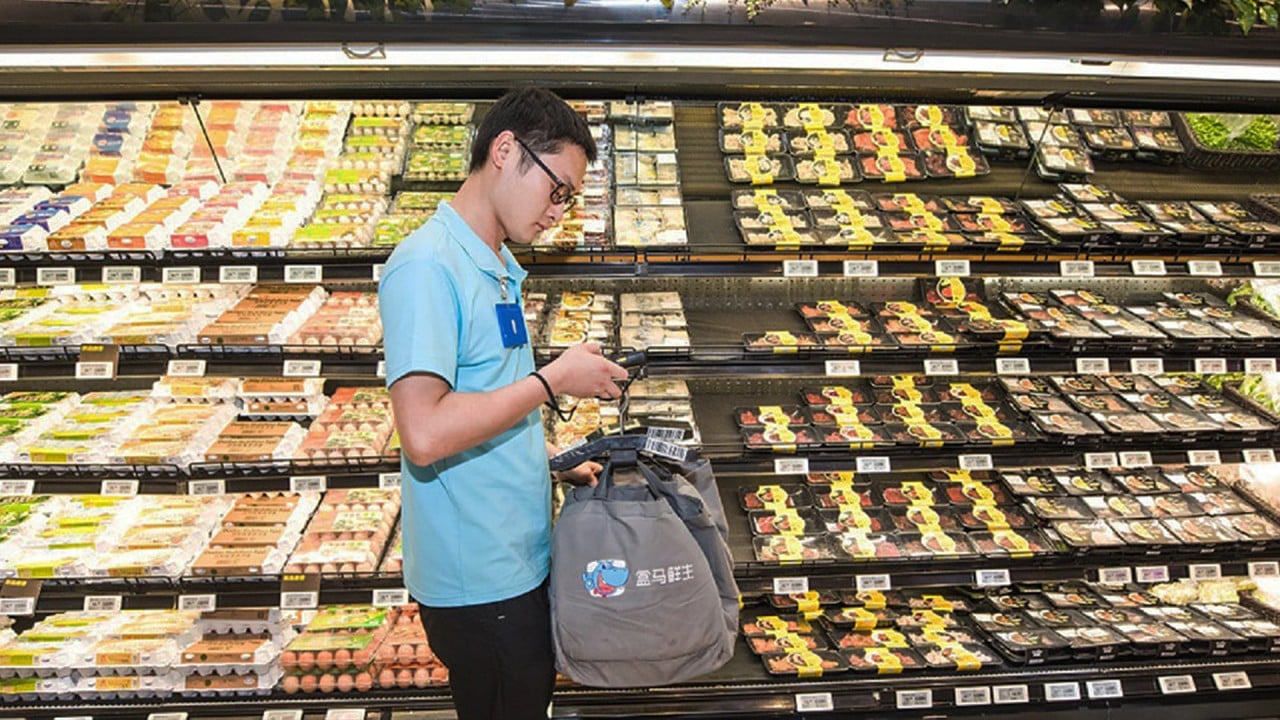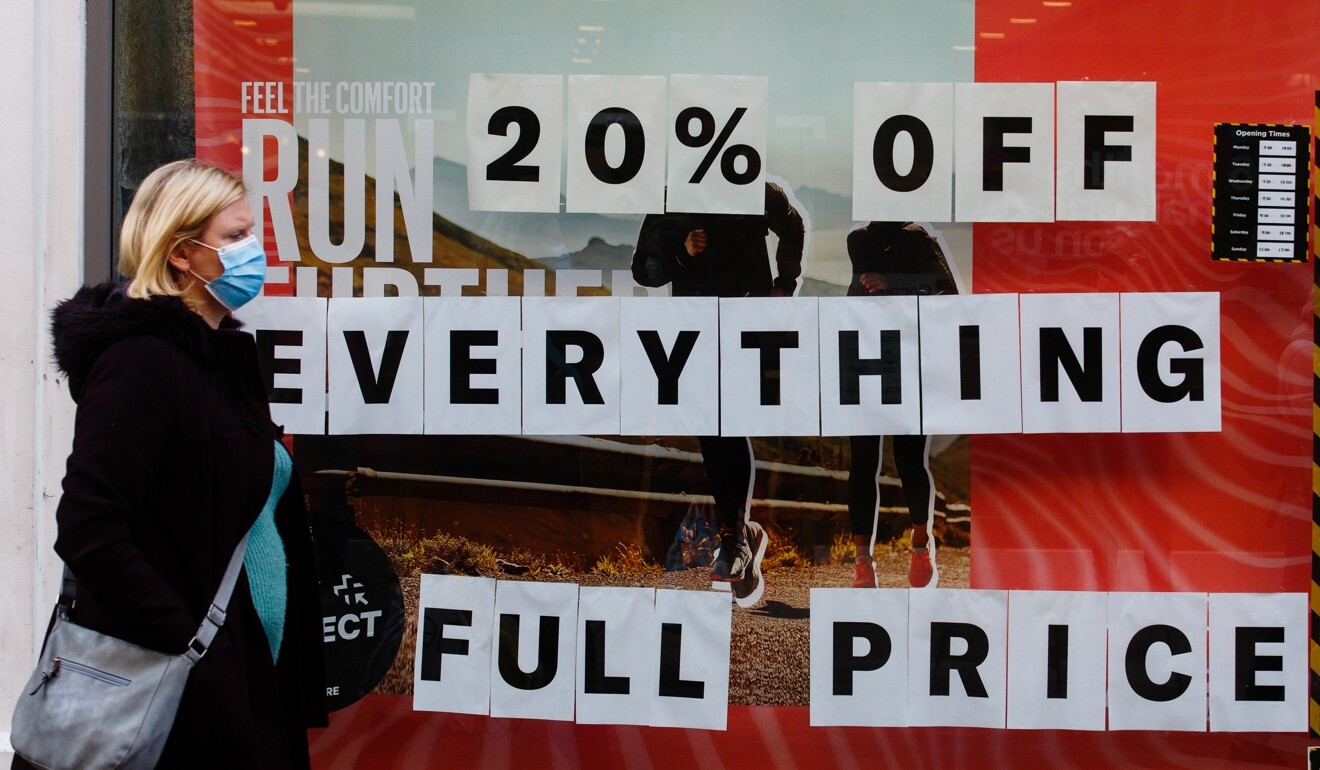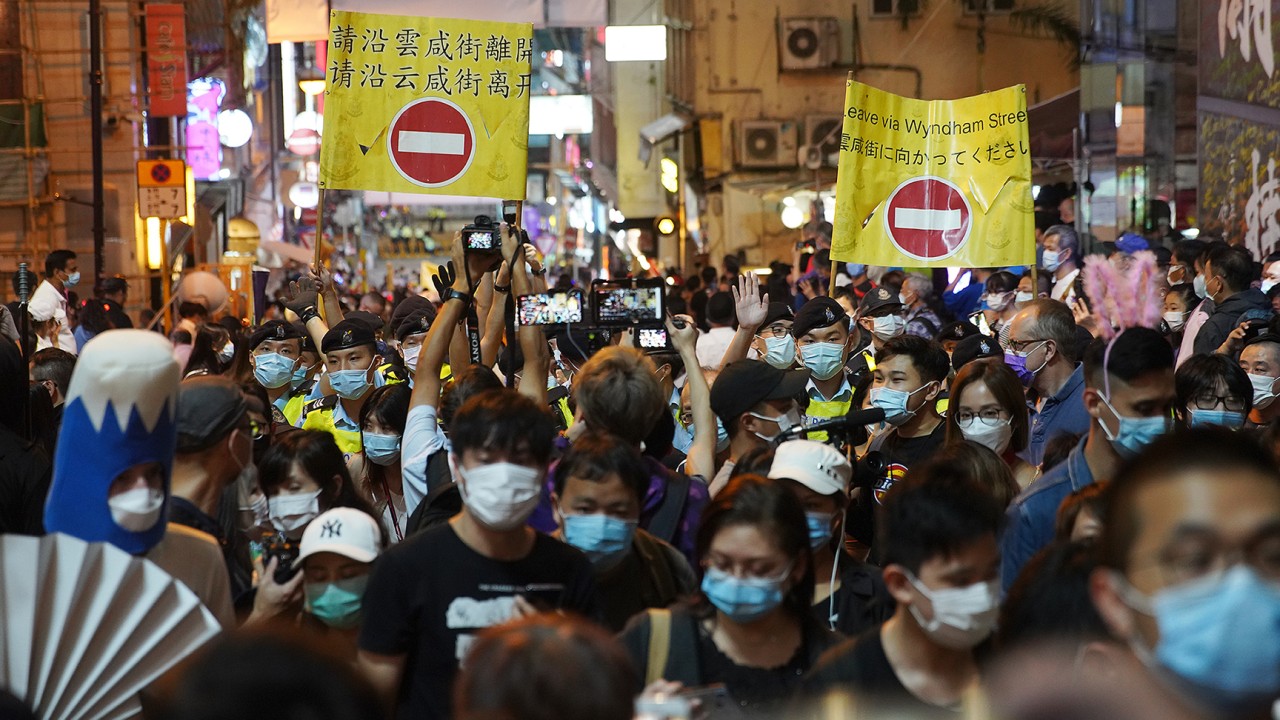
01:37
E-commerce companies in China offer temporary jobs to thousands amid coronavirus outbreak

When Alibaba calls time on its “Singles’ Day” e-shopping extravaganza on November 11, there will be three massive takeaways for the retail sector, illustrating the colossal structural and probably permanent changes that are roiling the sector worldwide.
First, it will confirm the sound consumer recovery under way in China, making it one of a few economies worldwide that will report positive economic growth in 2020.
After China’s positive gross domestic product growth of 4.9 per cent in the third quarter, the International Monetary Fund is predicting full-year growth of 1.9 per cent – anaemic by China’s standards, but a blessing compared to expected falls of at least 4.3 per cent in the US, 9.8 per cent in the UK, and 7.5 per cent here in Hong Kong.
Second, it will confirm the shift towards e-commerce, with China leading the way. And third, it will undoubtedly reflect the massive shift in consumer habits that has occurred during the pandemic. Some of these may be temporary, but a lot may be here for good. The pandemic has also created unprecedented volatility.

01:37
E-commerce companies in China offer temporary jobs to thousands amid coronavirus outbreak
Alan Jope, CEO of Unilever, complained last week that instead of normal annual growth rates ranging from 2-5 per cent, he was seeing rates “that range from minus 40 to plus 25 over the past couple of quarters”.
This kind of volcanic growth has been par for the e-commerce course of Alibaba since it first launched its “Singles’ Day” shopping festival in 2009. After an almost 26 per cent jump in the gross merchandise volume last year to US$38 billion, following 2018’s 27 per cent rise, we could be forgiven for having more modest expectations in this massively-disrupted pandemic year.
Instead, expectations are as ambitious as ever. When pre-bookings for Singles’ Day began on November 1, the company reported that 100 brands recorded sales of 100 million yuan (US$15 million) apiece within two hours of opening.
Competitor JD.com, which echoes Alibaba’s extravaganza, reported first day presales up 90 per cent on last year, with intense focus on smartphones, washing machines, televisions, fridges and laptops. The company said sales of Huawei’s new Mate 40 phone surpassed 100 million yuan within eight seconds of the platform opening.
Singles’ Day may always be dismissed as a flamboyant marketing exception, but it is sending a significant message at a time when most economies worldwide are seeing a turbulent contraction in the retail sector as pandemic lockdowns trap people at home and leave many families facing joblessness or reduced earnings.
With restaurants, pubs, sports events and other social gatherings closed, and several city centres resembling ghost towns, many small businesses face collapse.
China’s first Singles’ Day lesson is that early comprehensive containment measures against the pandemic can offer a sharp “V-shaped” recovery, rather than the messy “W-shapes” that may blight many Western economies well into 2021.
The second lesson of the continuing surge of online shopping worldwide has been obvious, and has been a lifesaver for many families worldwide that are locked down by the pandemic. Statista estimated that e-retail sales amounted to US$3.5 trillion in 2019, accounting for 14 per cent of global retail sales and were likely to grow to 22 per cent by 2023.
The pandemic has, in all probability, significantly exploded that forecast. This has made an already-terrible decade for legacy retail stores even more challenging looking ahead.

But the third lesson is the more intriguing: the pandemic has affected buying habits in unexpected ways. As people have been forced to stay at home and visits to restaurants, bars, hairdressers or football games have been curbed, so the retailers to these sectors have been crippled. Meanwhile, the crash in tourism put thousands of high street stores on death row.
But the new “stay at home” habits have been both good and bad for different retailers. Sales of hair dye have soared as people can’t go to the hairdresser. So, too, have skincare products, vitamins and disinfectant products. But demand for cosmetics, deodorants, new clothes and jewellery have tumbled as our stay-at-home habits obliterate the need to impress people.
Much has been said about the home-baking explosion and the massive surge in delivery of flour, but as the well-off have cut back on visiting restaurants, so demand for home delivery of fine wines has jumped. Demand for processed and canned goods – such as Spam – has also leapt.
Surprisingly, sales of alcohol overall have dropped as people stop consuming in pubs and bars but, at home, demand has jumped for cocktail liquors like tequila and vodka. Equally surprising, demand for condoms has fallen during the lockdowns as our singles have cut their socialising.

Hundreds celebrate Halloween in Hong Kong’s popular nightlife district despite Covid-19
These eccentric global retail shifts have been well-echoed here in Hong Kong, with September’s retail sales numbers showing a 47 per cent fall in clothing sales in the year so far, and a 60 per cent crash in jewellery, watches, clocks and luxury gifts. Cosmetics sales are around 53 per cent off. Alcohol sales are 68 per cent down, and bread, confectionery and biscuits sales are down 17 per cent – no doubt compensated for by all that home baking.
While Alibaba’s overall Singles’ Day story is one of resurgent consumer demand inside China, and a relentless shift to online shopping from visits to malls, for the retail sector as a whole, the combination of e-shopping and pandemic lockdowns points to a terrible few years ahead.
Pain is likely to be particularly acute in Hong Kong, with the extermination of tourism and an enthusiastic precautionary adoption of home delivery. But will the shift be sustained? With most families living in homes of 500 sq ft or less, I believe the urge to get out and about will be irresistible as soon as Covid-19 allows. There may be life in our shopping malls yet.
David Dodwell researches and writes about global, regional and Hong Kong challenges from a Hong Kong point of view